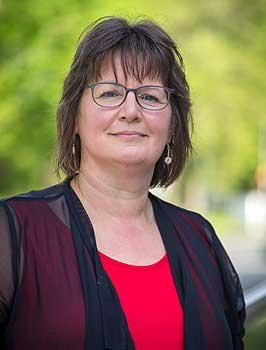

Leptospirosis is a globally important multi-host, multi-pathogen disease which can be transmitted to humans from animals, with more than one million cases and 60,000 deaths annually. Humans are infected through contact with urine from infected mammals including wildlife, rodents, farmed species and pets.
Associate Professor Jackie Benschop from Massey University’s School of Veterinary Science will discuss her research around leptospirosis in New Zealand, at the 27th International Symposium on Epidemiology in Occupation Health (EPICOH), being held in Wellington from April 29 until May 2.
Dr Benschop, one of five keynote speakers at the conference, says despite extensive nationwide intervention measures, leptospirosis remains an unacceptable burden on New Zealanders particularly those living in rural communities and on Māori.
“Famers and meat-workers remain most at risk and key intervention strategies for these occupations are the use of personal protective equipment [PPE] and animal vaccination,” she says. “I will present our work on leptospirosis at the human-animal interface with focus on meat-workers who are required to use PPE yet have no say in the vaccination status of animals they are exposed to.
“The use of protective equipment does not necessarily prevent infection, animal vaccines do not cover all strains, and it is popping up where people had previously thought it would not. We have heard that access to ACC can be challenging for some and we have started two parallel studies focusing on worker compensation for occupational leptospirosis. I will present interim findings from these at the EPICOH symposium,” Dr Benschop says.
Since first meeting in Helsinki in 1981, EPICOH has held regular scientific conferences to promote communication about epidemiological studies on the health effects of occupational exposures among epidemiologists, toxicologists, hygienists and exposure analysts, and other occupational health scientists.
This is the first time the EPICOH conference has been held in New Zealand, and it has been brought here by Massey University researchers from the Centre for Public Health Research.
The local organising committee includes Professor Jeroen Douwes, Dr Andrea ’t Mannetje, Dr David McLean, Dr Amanada Eng, Dr Hayley Denison, Dr Sunia Foliaki and Dr Marine Corbin from the Centre for Public Health Research, as well as Professor Chris Cunningham from the Research Centre for Māori Health and Development, and Professor Philippa Gander from the Sleep/Wake Research Centre.
Other keynote speakers
Dr Laura Beane Freeman - US National Cancer Institute, Division of Cancer Epidemiology & Genetics, Occupational and Environmental Epidemiology Branch
The focus of her work includes investigating cancer risk associated with a number of occupational and environmental exposures. Specifically, she conducts research related to the agricultural environment where excess risks are observed for Hodgkin lymphoma, non-Hodgkin lymphoma, leukaemia, multiple myeloma, and cancers of the brain, skin, lip, stomach and prostate. Exposures suspected of contributing to the excesses include pesticides, viruses, mycotoxins and a variety of other agents. Dr Beane Freeman will deliver a keynote address on agricultural exposures and health outcomes.
Professor Martie van Tongeren- Professor of Occupational & Environmental Health the University of Manchester
His main research projects include development and application of tools to estimate current and past exposure to various chemical and other agents in the work environment and the home for chemical risk assessment and epidemiological studies. He has nearly 30 years of experience in research in occupational and environmental exposure assessment and epidemiology, including more than 10 years at the Institute of Occupational Medicine (IOM) in Edinburgh most recently as Head of Exposure Assessment/Director of Research Development. Professor van Tongeren will deliver a keynote address on intervention studies in occupational health.
Professor Rima Habib- Professor of Occupational & Environmental Health, American University of Beirut
Throughout her career, she has led research and made contributions in themes including: Health of displaced, refugee and migrant populations; Ecosystem approaches to human health in poor rural communities; and Work-related exposures and human health. Most recently, her research has focused on the working experiences and occupational health outcomes of refugees in Lebanon, including Syrian refugee populations. Professor Habib will deliver her keynote address: Conceptualising Child Labour in Conflict Settings: The Case of Syrian Refugees.
Professor Neil Pearce - Director of the Centre for Global Non-communicable Disease, London School of Hygiene and Tropical Medicine
The 2019 recipient of the EPICOH Award for Outstanding Contributions to Occupational Epidemiology, Professor Pearce previously held the role of Director of Massey University’s Centre for Public Health Research, and was a co-founder of the Wellington Asthma Research Group at the Wellington School of Medicine. Neil’s work is not limited to traditional areas of occupational epidemiology (chronic diseases associated with a wide range of occupational exposures such as pesticides, dust, solvents, and other chemicals), but also includes work on health inequities related to differential occupational exposures in vulnerable populations including Māori (the indigenous population of New Zealand). Professor Pearce will deliver his keynote address: The Evolution of Occupational Epidemiology.